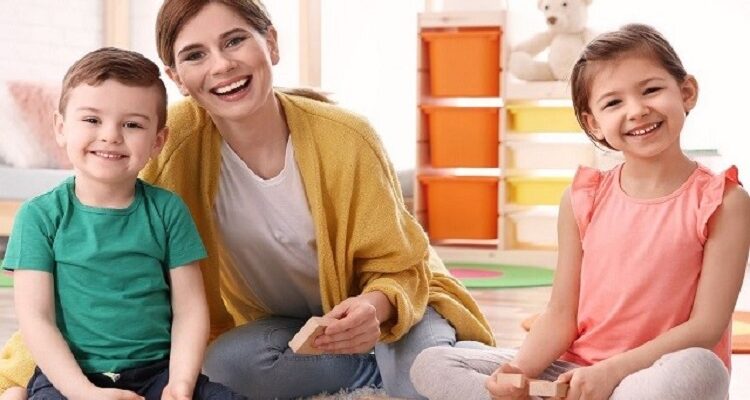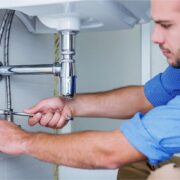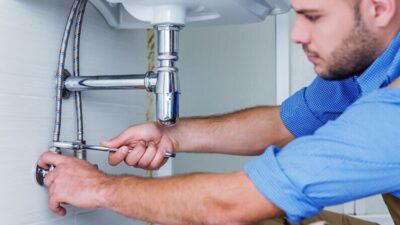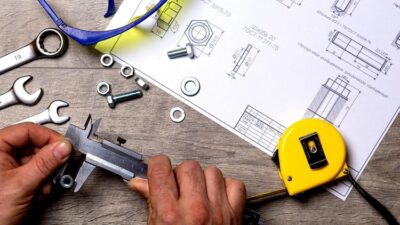An au pair is a young woman who lives with a host family to help them look after their children. It can involve child care, housekeeping and cooking. The qualifications needed to be an au pair vary between countries, but most au pairs are college-educated and speak a second language. Some have previous childcare experience or nannying skills.
Table of Contents
Housekeeping
An au pair can be expected to help with household duties such as cleaning the kitchen, bathroom and bedrooms. However, heavy housework, such as gardening or cleaning up pet messes, is generally separate from an au pair’s job. Au pairs also may be responsible for washing the host family’s clothes or other linens. An au pair might assist with grocery shopping. It usually does not mean doing the full weekly shop but helping with lighter errands. An au pair might also be asked to cook meals or prepare snacks for the children. It is a good idea for an au pair to ask at the outset if any special dietary requirements or food allergies and intolerances should be considered.
Au pairs are normally allowed to have a set amount of time off work each week. It is especially important for au pairs with academic goals and interests they want to pursue during their stay with the host family. A qualified au pair from websites like Go Au Pair have much experience working with children, basic domestic skills and a good grasp of the host family’s language. Au pairs are normally female, but male au pairs have become more common in recent years. An au pair’s role is to live in the home of a host family, provide childcare and perform some light domestic tasks in exchange for a room and pocket money.
Childcare
Childcare is one of the main jobs that au pairs take on. They are expected to care for children as a part of their daily duties, taking them on outings, getting them to school and activities, preparing meals, cleaning up after them, helping with homework, and more. Families want their au pair to provide quality childcare and ensure the kids are happy. However, they should not be treated like maids, so families should be careful when assigning tasks. They should never ask au pairs to do heavy chores such as laundry, gardening, or vacuuming. They may ask au pairs to help with other household tasks that they do not expect other family members to do, such as emptying the dishwasher or cooking dinner for the whole family.
Moreover, they might be asked to participate in family activities on weekends and holidays. It can be a great opportunity for au pairs to understand their host country’s culture better. The au pair program only accepts applicants between 18 and 26 who speak English fluently at a native level. They also need to be in good physical and mental health. They must also have first aid and CPR training. Au pairs work for their host family in exchange for room and board and a monthly stipend.
Cooking
While au pairs only cook meals for part of the family, preparing snacks and reheating leftovers are common duties. Au pairs may also bake, roast or cook foods the children enjoy for special occasions. It is important to talk with your au pair before the placement begins about the level of cooking she can be expected to do and what tasks are outside her job description. Heavy house cleaning and garden work are not usually au pair duties. Some au pairs have extensive experience in various household and childcare jobs. They often have reference-checked nanny or babysitting expertise and may have worked as camp counselors, tutors, or coaches. Au pairs are typically female, and most are between the ages of 20 and 24, although some are male. Au pairs are treated like members of the family rather than hired help.
If you are concerned about your au pair’s cleanliness, consider setting a rule that anyone who uses the kitchen while you aren’t home will clean up after themselves. It will ensure your au pair’s standard of cleanliness is consistent with your family’s expectations and make it clear that she can use the kitchen as long as her working hours are not exceeded. Similarly, it would be best if you ruled that your au pair not vacuum or do laundry outside her room.
Driving
In countries where cars play a big role in everyday life, au pairs may be required to drive. In such cases, host families are advised to inform au pairs beforehand and provide them with a car for work. If this is not possible, au pairs should be familiar with public transportation options and routes, walking or cycling paths. In addition, host families should ensure that au pairs have a valid driver’s license and the necessary permissions to use their vehicle if they are expected to transport children or run errands.
Some host families ask au pairs to drive their children to school or after-school activities. It is a good way to introduce au pairs to local culture and community. However, it is important to note that driving can be a stressful task for au pairs, especially in a new country. In these cases, it is recommended that the host family provide additional time off to give au pairs enough space and freedom to complete their other household duties. Au Pairs are more than just nannies; they are temporary family members and should be treated as such. Both au pairs and host families must understand the nature of their relationship and sign a contract to ensure that expectations are met.













Comments